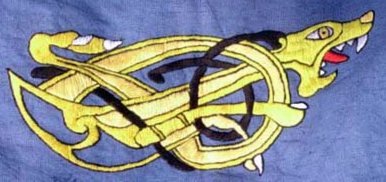University of California Regent John Moores, who had previously expressed frustration that the UC governing board lacked independence and acted as a tool of UC President Robert Dynes' administration, unexpectedly resigned Monday. (SF Chronicle, Nov 13, 2007)
Mr. Moores, a constant vocal critic of the UC board recently expressed disappointment that the governing board turned down his resolution to ban UC faculty and staff from accepting research money from tobacco companies, which he blamed for "a billion deaths."
In a stunning defeat for the People of California, his September 2007 resolution was rejected on a 14-4 vote Mr. Moores, Chairman of the San Diego Padres and Chairman of JMI Services Inc. has demonstrated more scientific integrity than most UCLA scientists, UC Regents and Times published authors combined.
By putting his money where his mouth is (Moores has been a generous supporter of the university, donated $21 million to UC San Diego for a new cancer center) Mr. Moores clearly understands that a result of any study is pre-determined by its design and objective.
In case of tobacco research, the "objective" is set by the payor—the Big Tobacco. Same Big Tobacco that has doubled its advertising budgets in the past year!?
Hence, the results of animal studies are skewed in favor of the payor. Given the pre-determined results of animal studies and its limited scientific applicability to humans (less than margin of error), Mr. Moores' resignation is morally correct and scientifically sound.
Unfortunately for its readership, the Los Angeles Times does not follow Mr. Moores’ socially responsible actions and continues to enforce an editorial agenda by refusing to publish letters expressing a solid, scientific, but opposing, opinion.
LA Times printed two more letters in support of animal research. Researchers working in the addictions fields do “unravel the scientific mysteries of these devastating medical disorders and bringing much-needed relief to those afflicted and their families””.
UCLA squanders hundreds of millions of hard-earned taxpayer dollars to turn monkeys into tweakers, while drug rehabilitation centers flounder due to lack of funds to assist the hundreds of thousands of ready-made human tweakers.
Uselessness of animal research and its inability to be approximated to human-relevant data is best illustrated by the results of a study presented this week in San Diego at the Society of Neuroscience.
Scientists at University of Bordeaux, France demonstrated that rats overwhelmingly prefer saccharin to cocaine.
Both sugar and cocaine increase levels of the brain chemical dopamine. Unfortunately for rats and humans though, through a completely different brain mechanism.
Such a mammalian response in rats means absolutely nothing to human substance addiction model, but at least the French kept the rats happy.
Abused animals do not need any “relief from researchers”, since the occurrence of substance addiction in the wild and/or well-run Zoo is simply nonexistent.
Now, if only UCLA researchers can train humans in the wild to seek out water sweetened by Sweet & Low, some of the millions awarded to UCLA to hook primates might be redirected toward those more laudable endeavors.
We are Making a Difference (MAD), you decide.
Dr.D.
Wednesday, November 14, 2007
Subscribe to:
Post Comments (Atom)


No comments:
Post a Comment